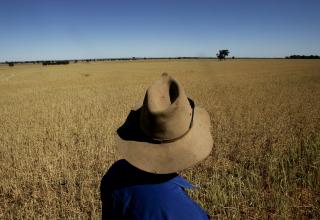REZ support surveyed
 A new survey reveals strong backing for renewable energy initiatives among Australians living in Renewable Energy Zones (REZs).
A new survey reveals strong backing for renewable energy initiatives among Australians living in Renewable Energy Zones (REZs).
The study, commissioned by Farmers for Climate Action and conducted by 89 Degrees East, gathered responses from 1,001 residents. It paints a picture of cautious optimism, with a focus on ensuring projects are beneficial and well-managed.
Approximately 70 per cent of respondents supported renewable projects on local farmlands, with only 17 per cent opposed.
Among those with farming connections, support was even stronger, reflecting a widespread belief in the potential of renewables to provide steady, drought-resistant income.
Despite this, most residents remained unaware they were part of a “quiet majority” favouring clean energy initiatives.
Farmers stand to gain more than $40,000 annually per wind turbine and $1,500 per hectare for solar panels - lucrative figures that are not well-known in these communities.
Key benefits cited by survey participants included supplementary income for farmers, improved energy reliability, and local economic growth. However, such enthusiasm came with strings attached.
Three-quarters of those surveyed believed operators should offer tangible benefits, such as energy rebates for nearby households and businesses. Concerns about disruptions to farming operations and environmental impacts also featured prominently in the responses.
Farmers involved in focus groups, spanning every Australian state and an age range of 26 to 67, expressed cautious support for “renewables done right”.
Their views show a deep mistrust of developers and a demand for stronger government regulation, especially around decommissioning outdated infrastructure.
This scepticism is further reflected in their call for transparency and accountability to safeguard farmland and community interests.
Natalie Collard, CEO of Farmers for Climate Action, said the findings align with other recent studies, including polls by Porter Novelli, CSIRO, and RE-Alliance.
“The data shows the quiet majority of rural Australia is clearly in favour of clean energy projects locally, although many do not realise they are part of the quiet majority,” she said.
Collard stressed that both supporters and opponents share similar concerns, highlighting the need for developers to engage in meaningful consultation.
The survey also revealed a significant gap in public awareness about the financial success some farmers already experience by leasing land for renewables.
With the majority of REZ residents unaware of the potential benefits, the industry faces a clear challenge: balancing the promise of economic and environmental gains with the demands for community-first practices.








 Print
Print